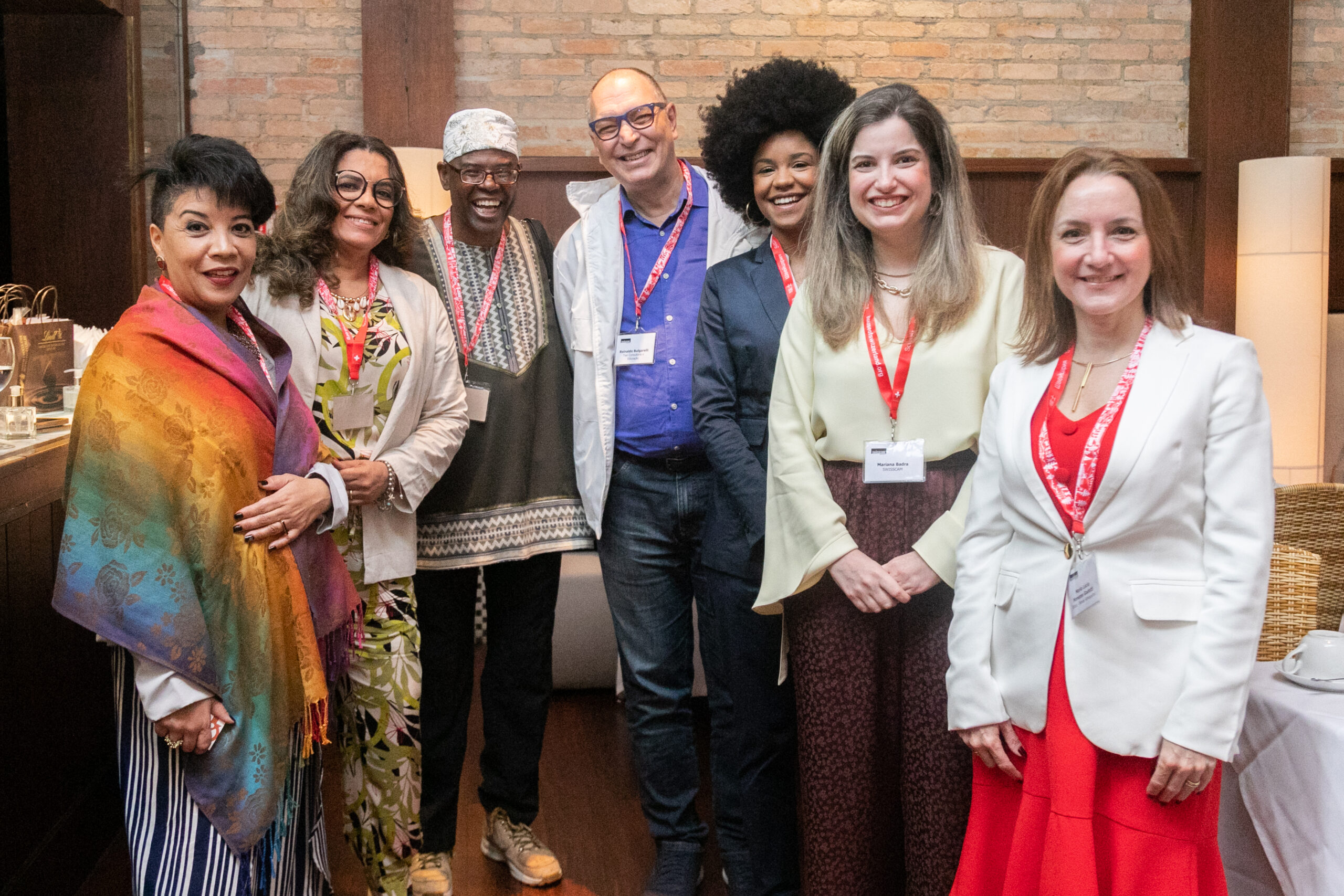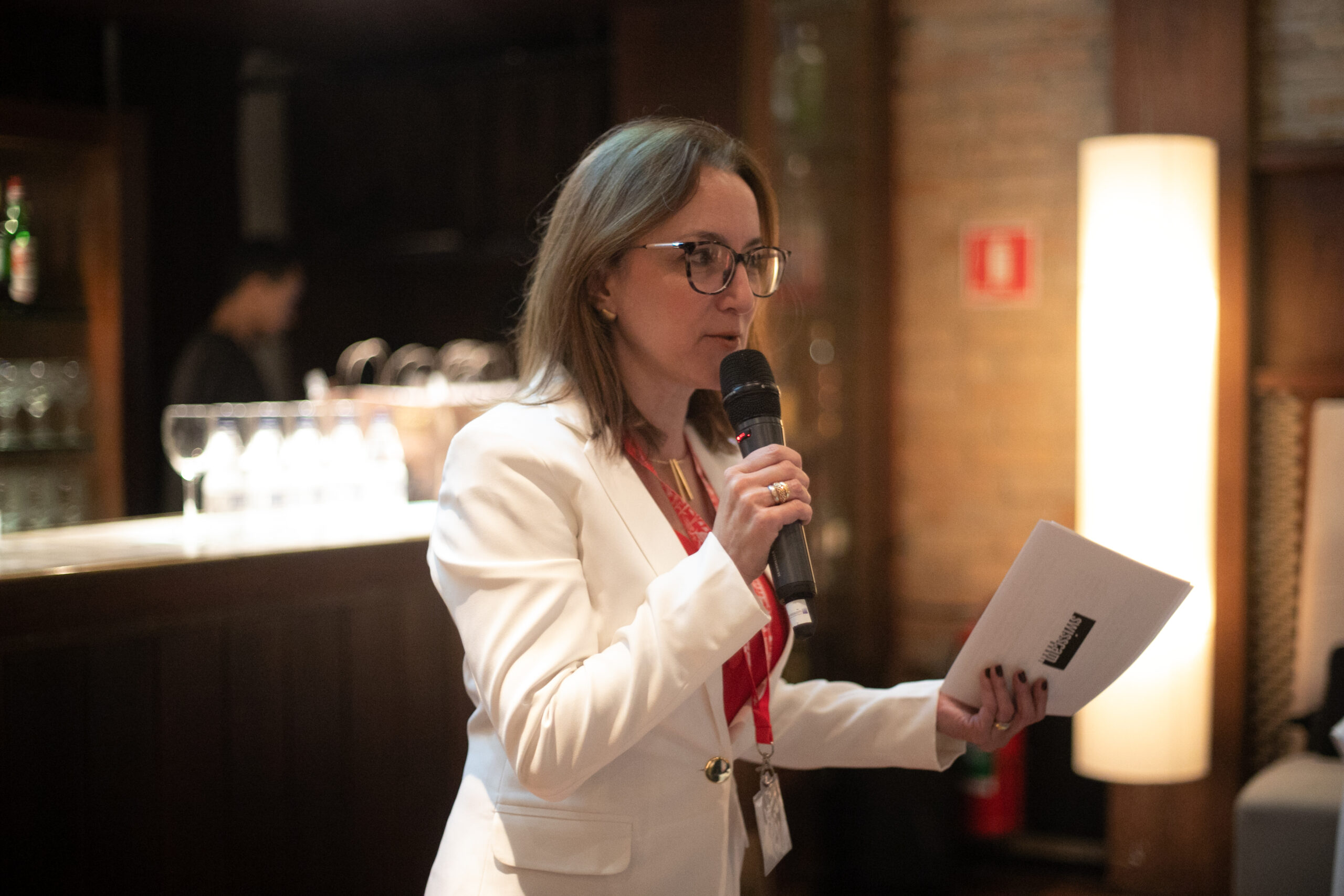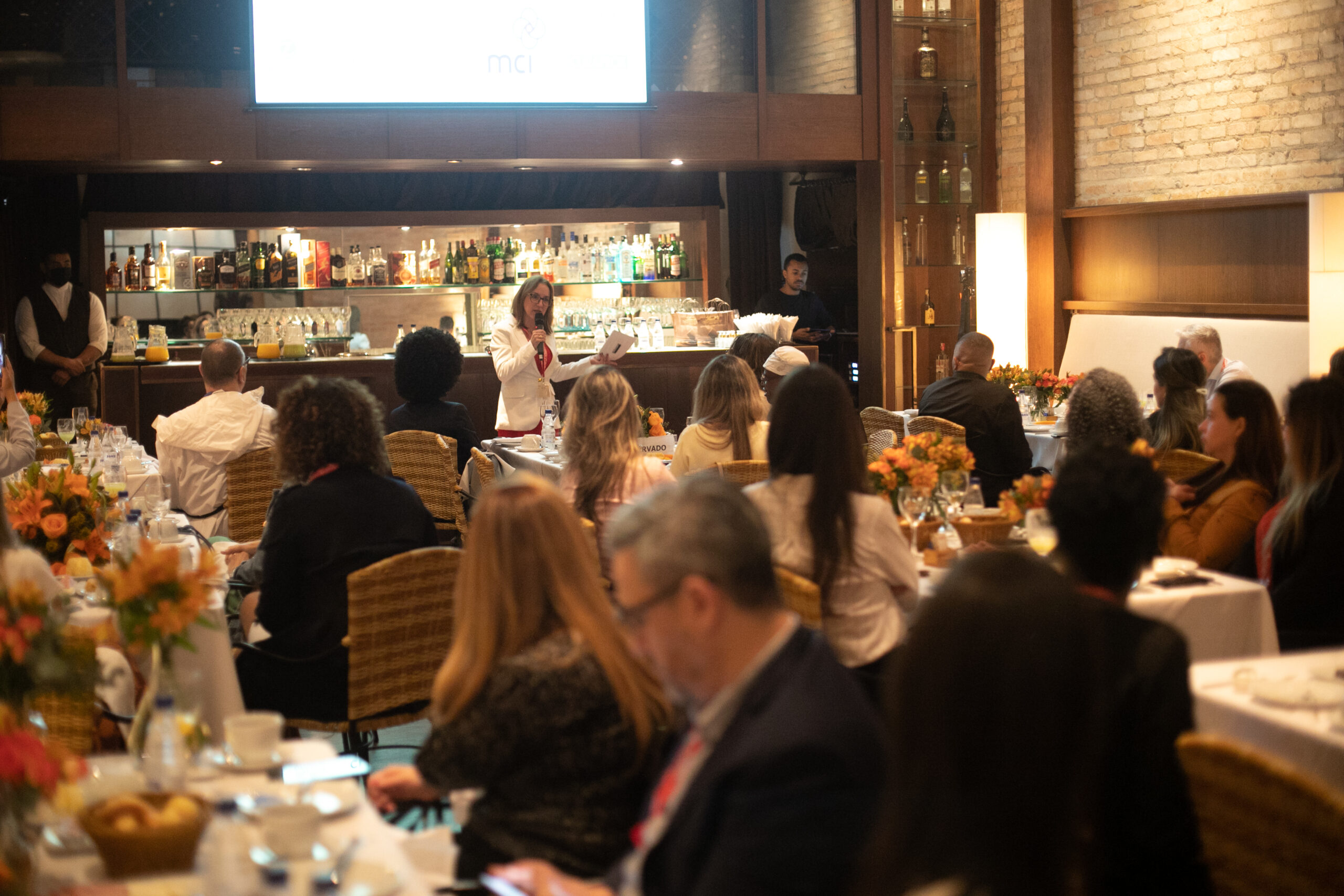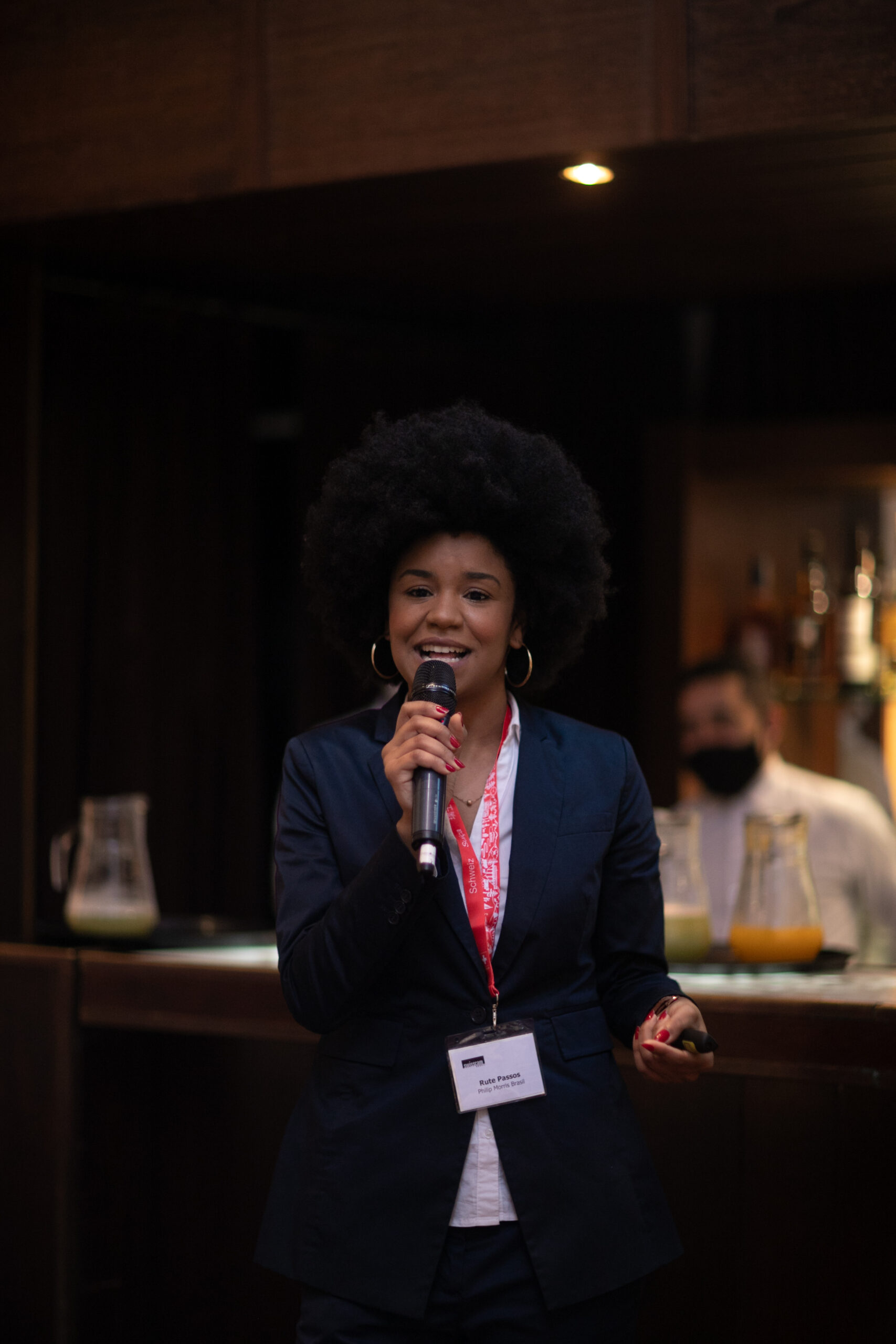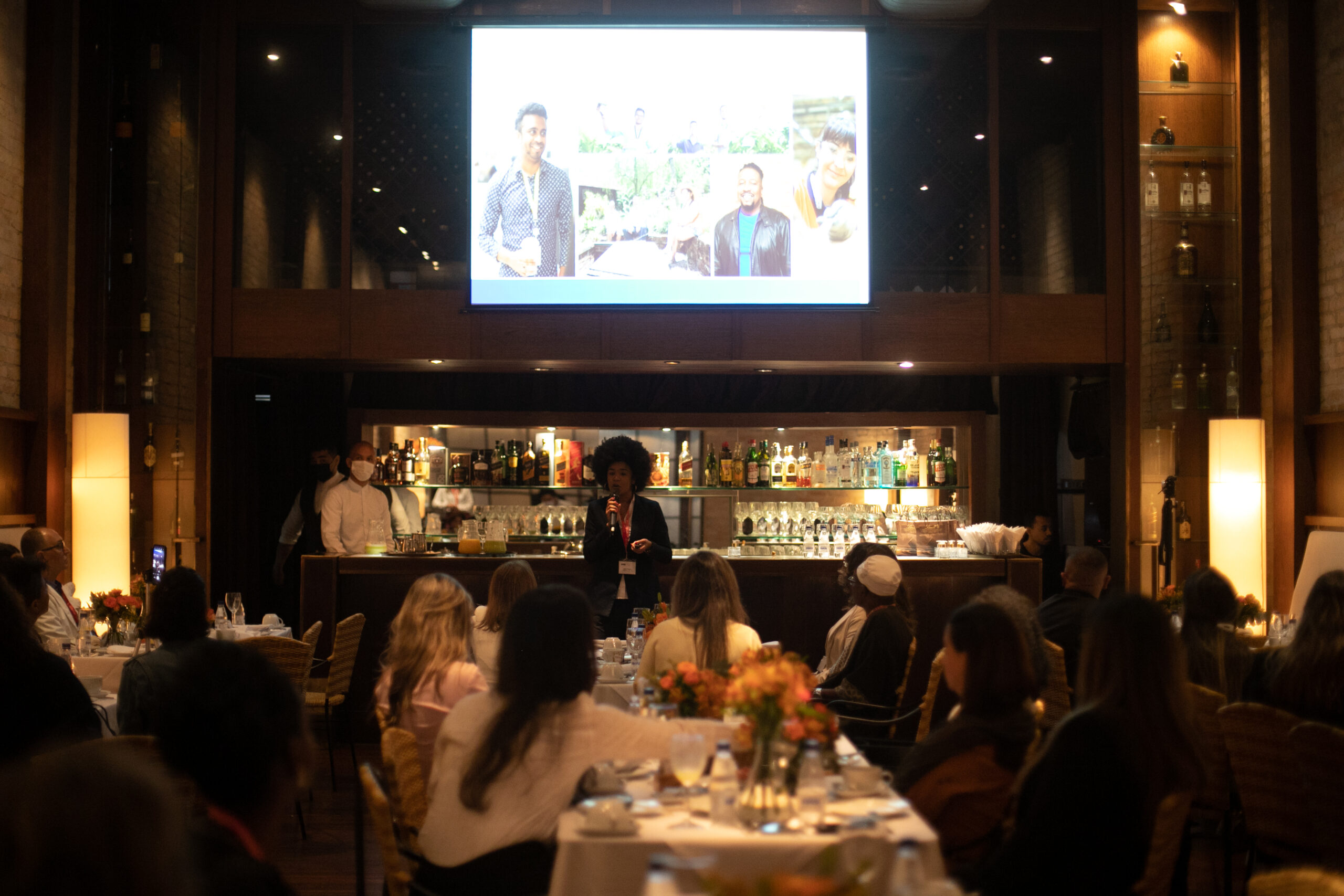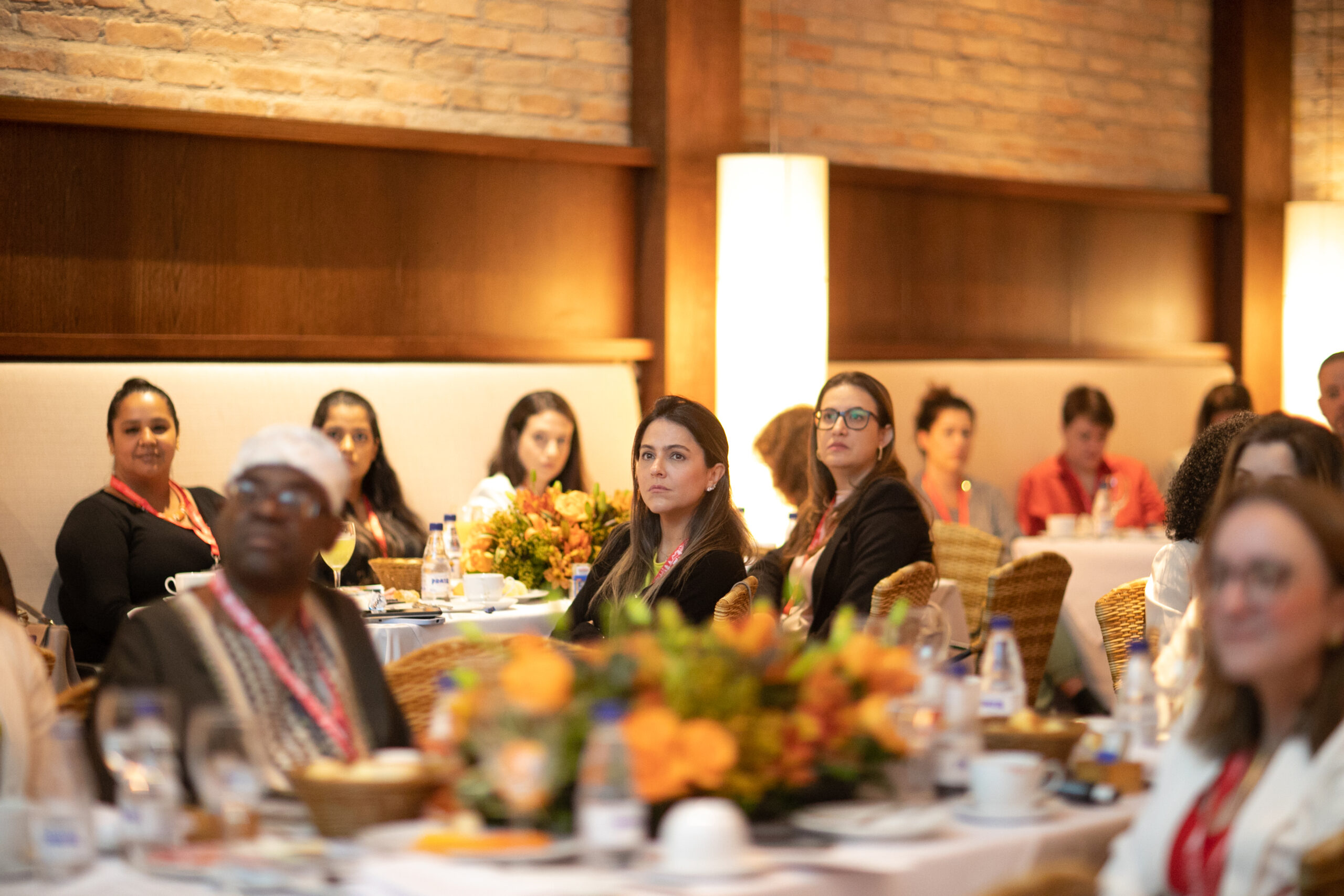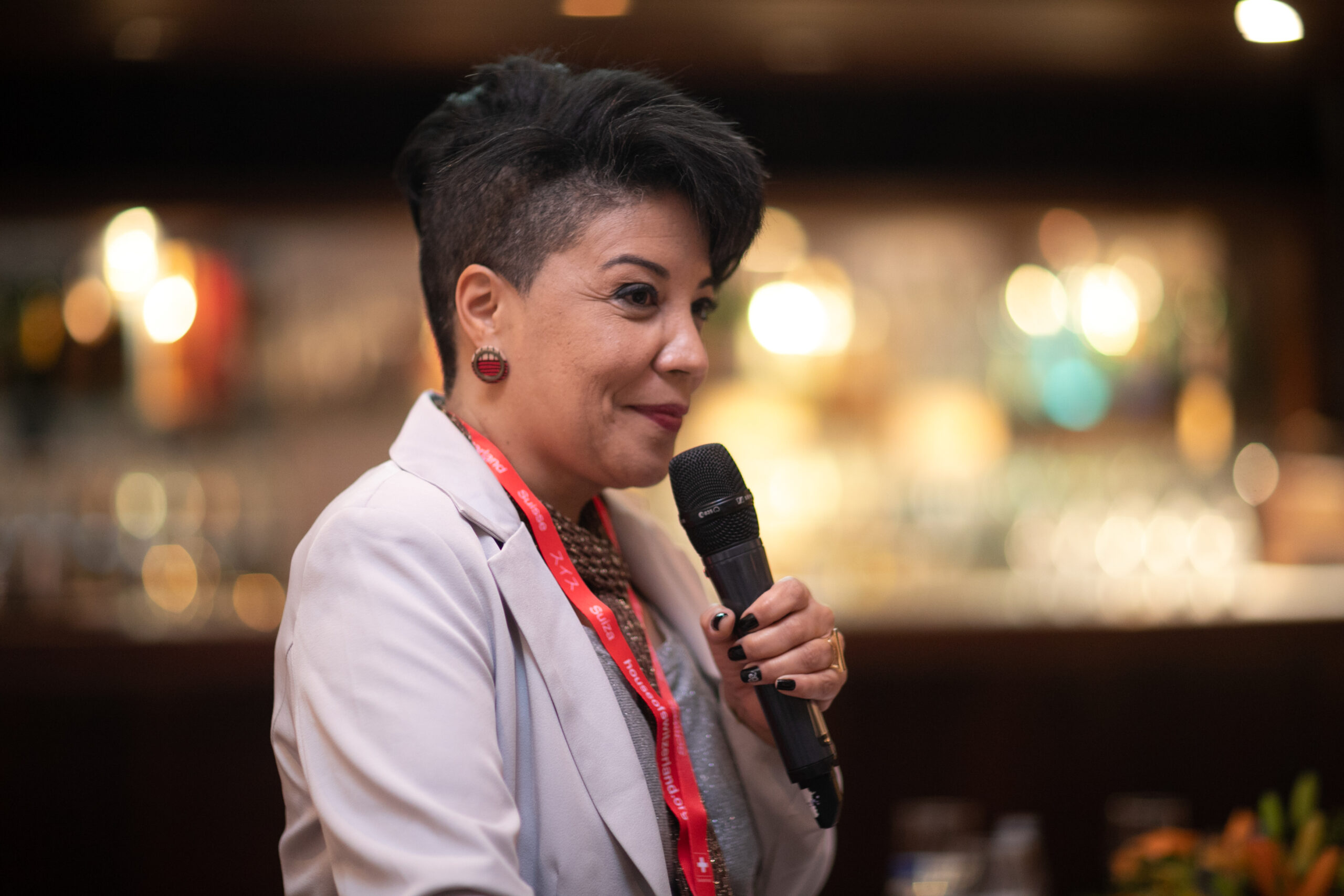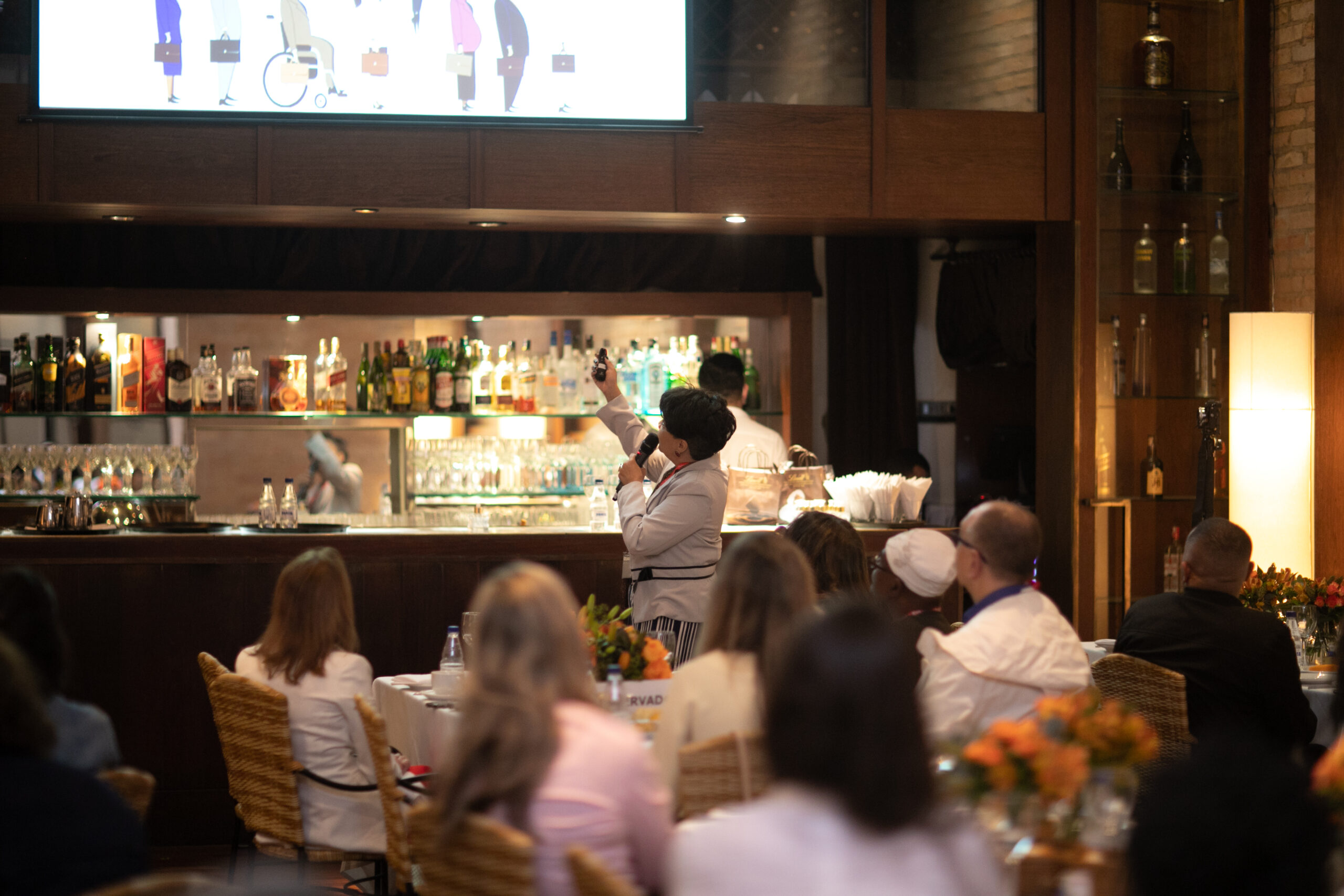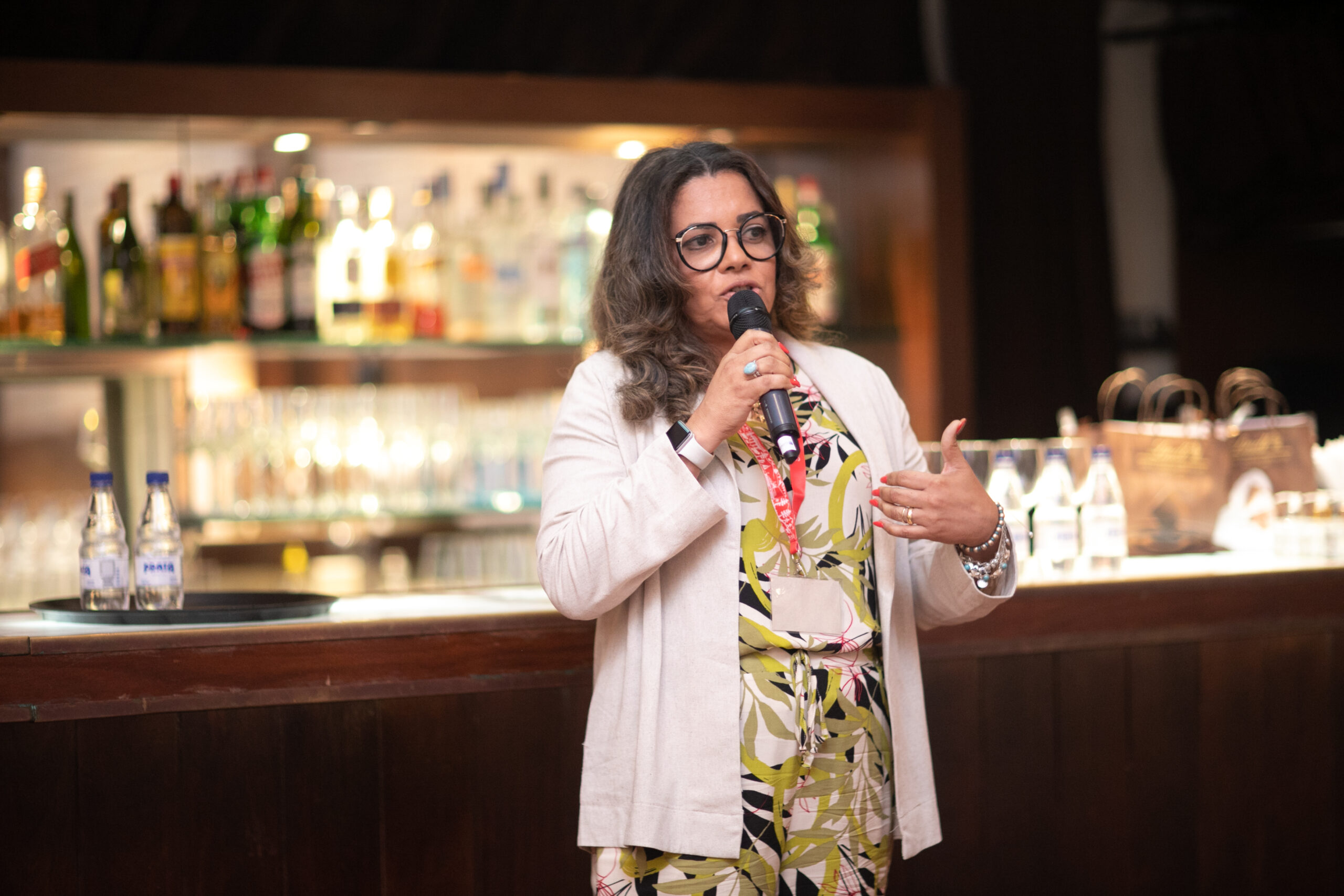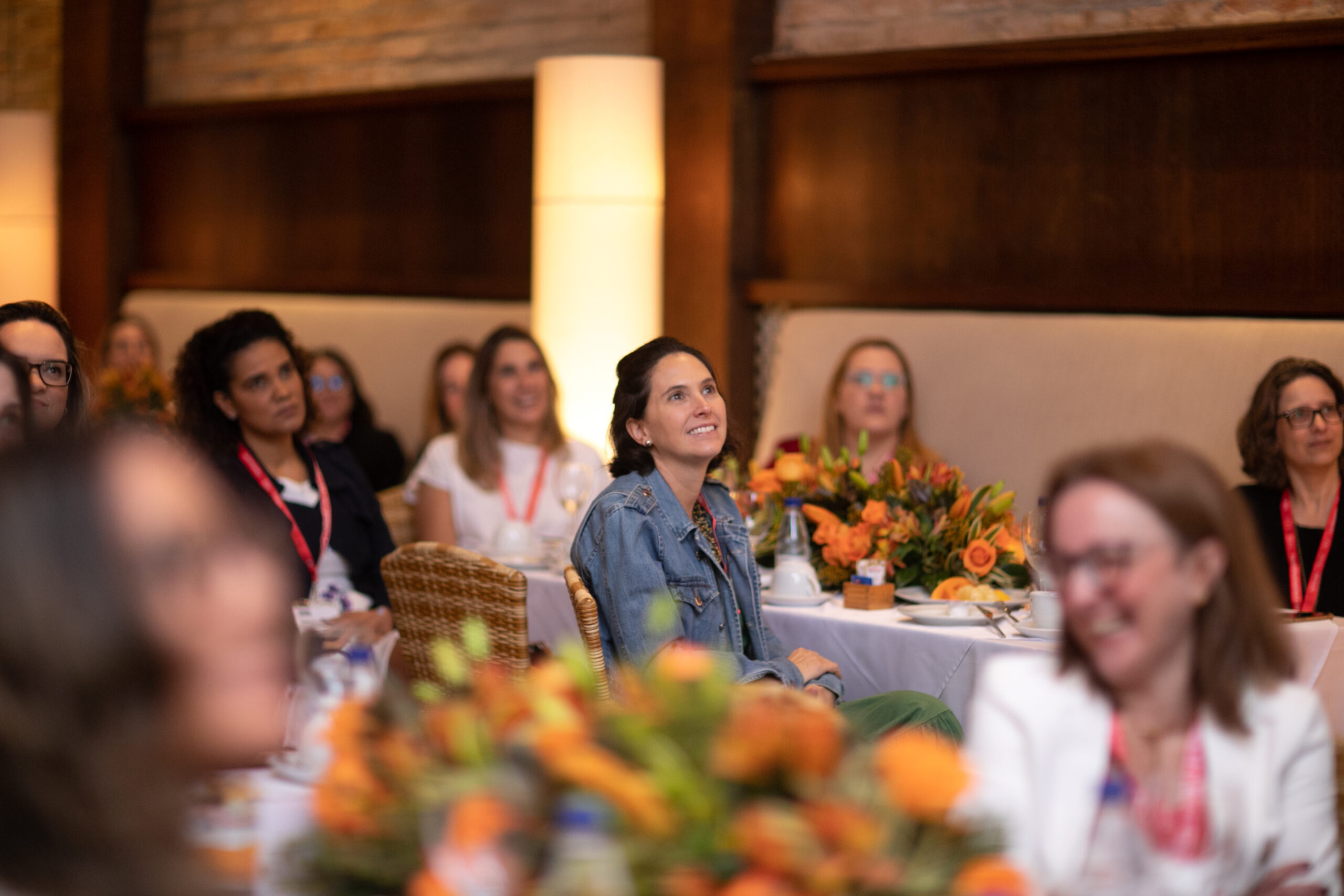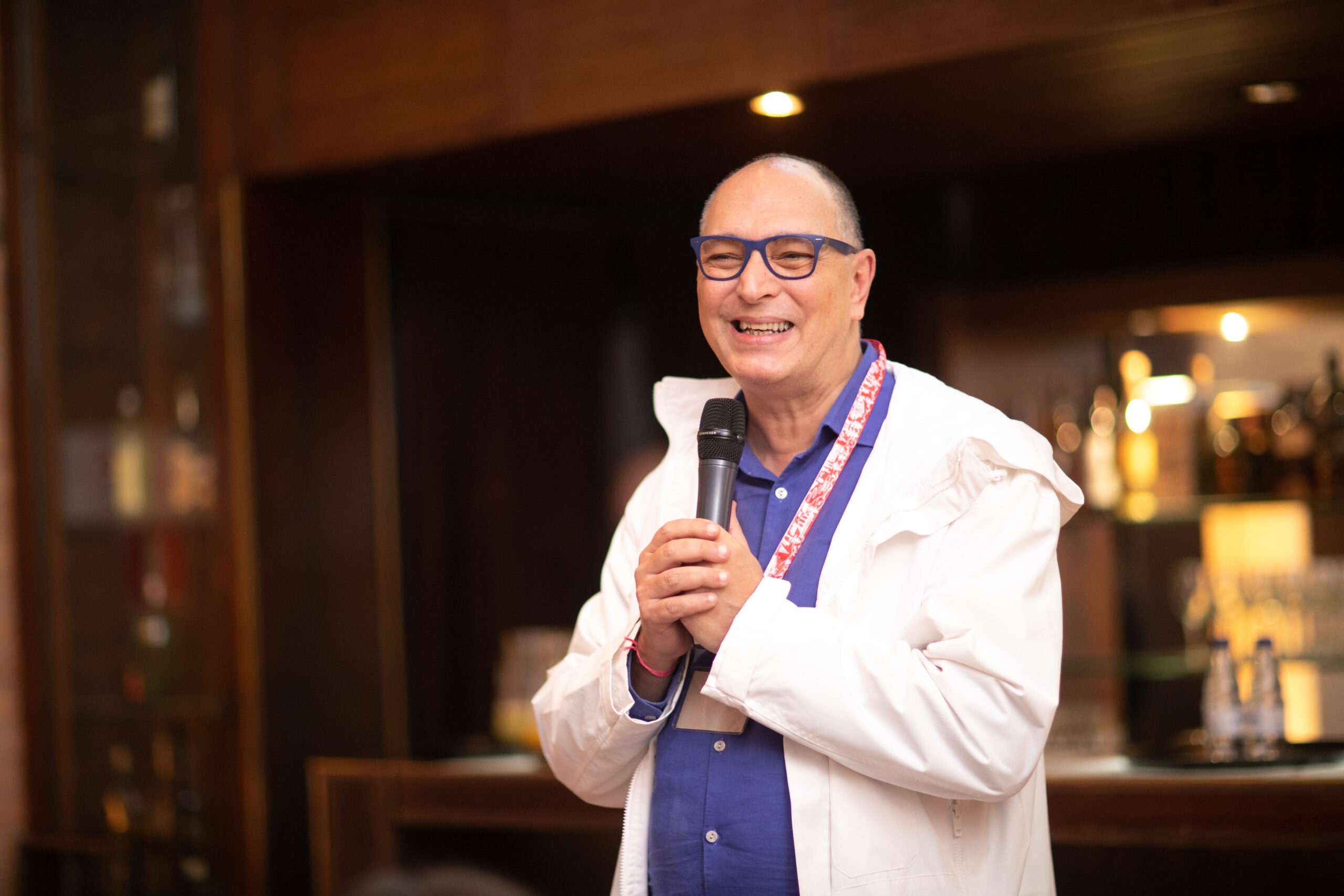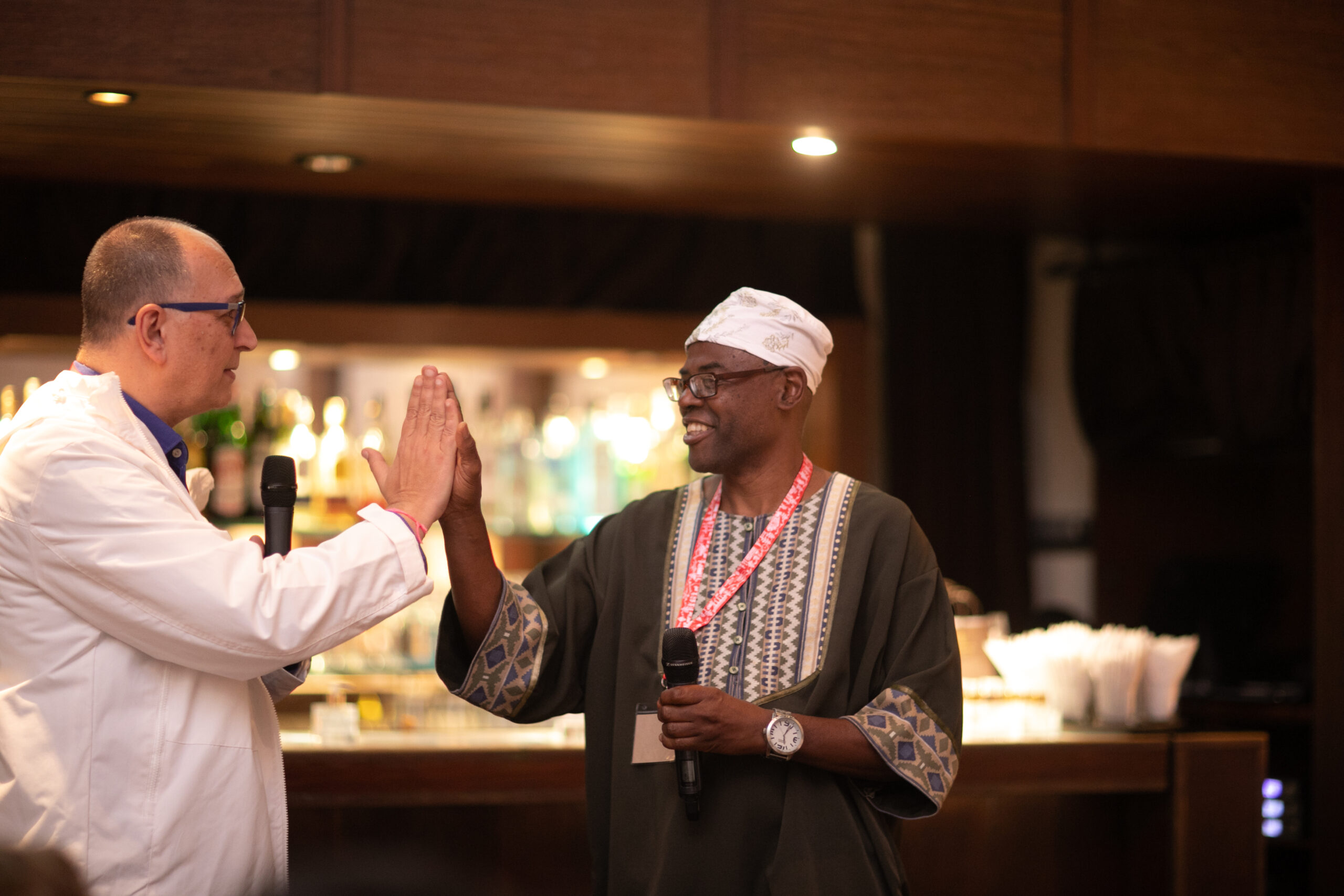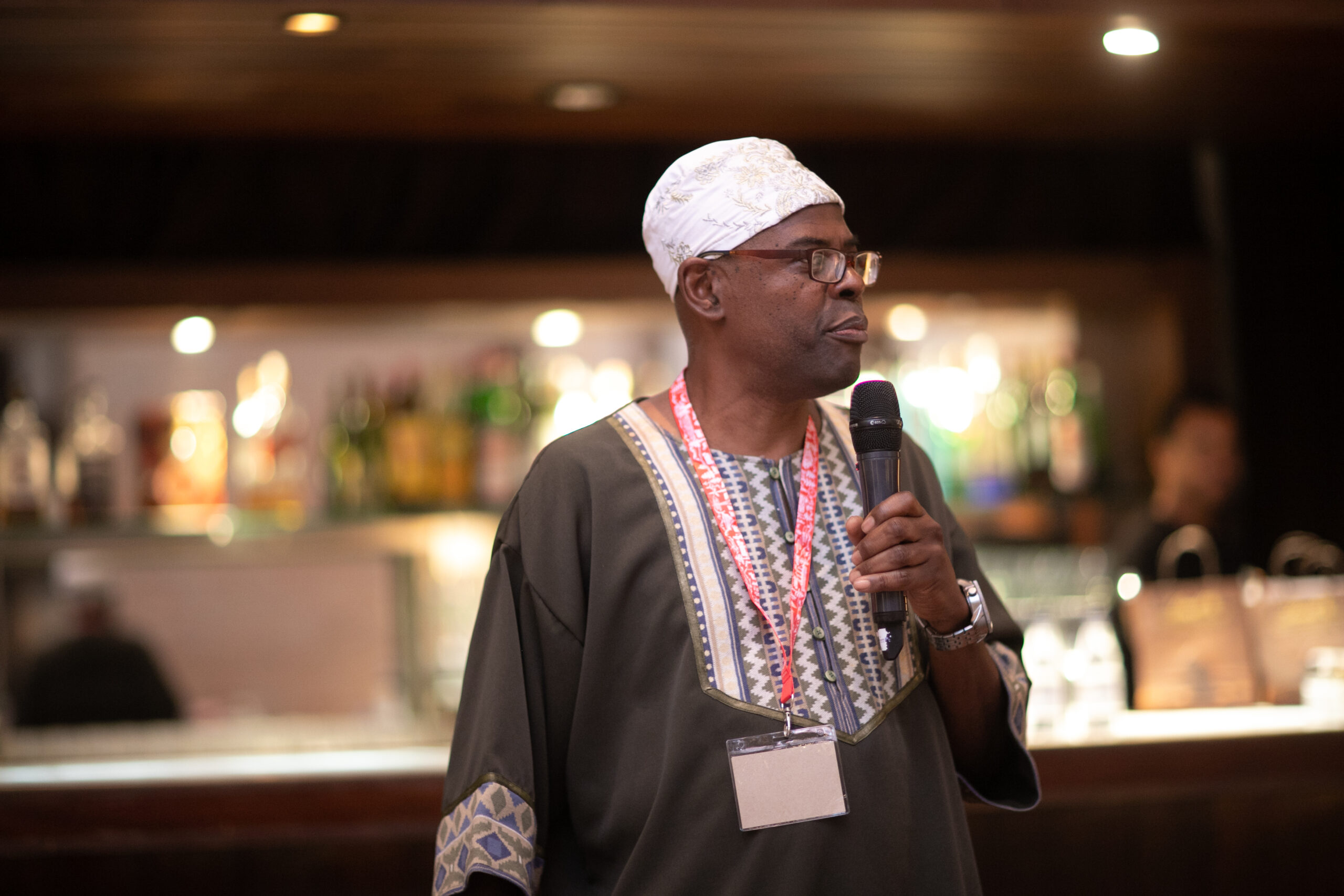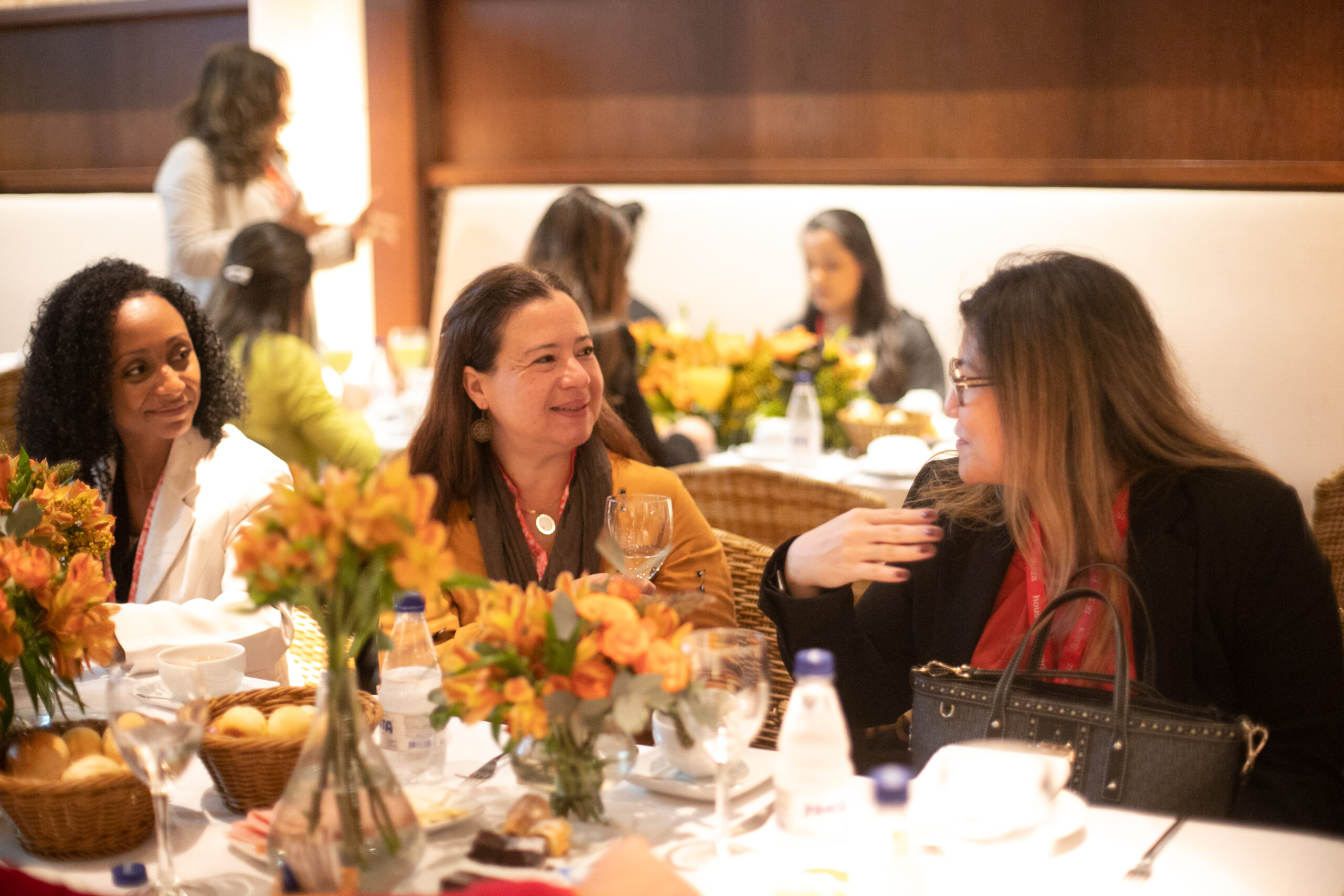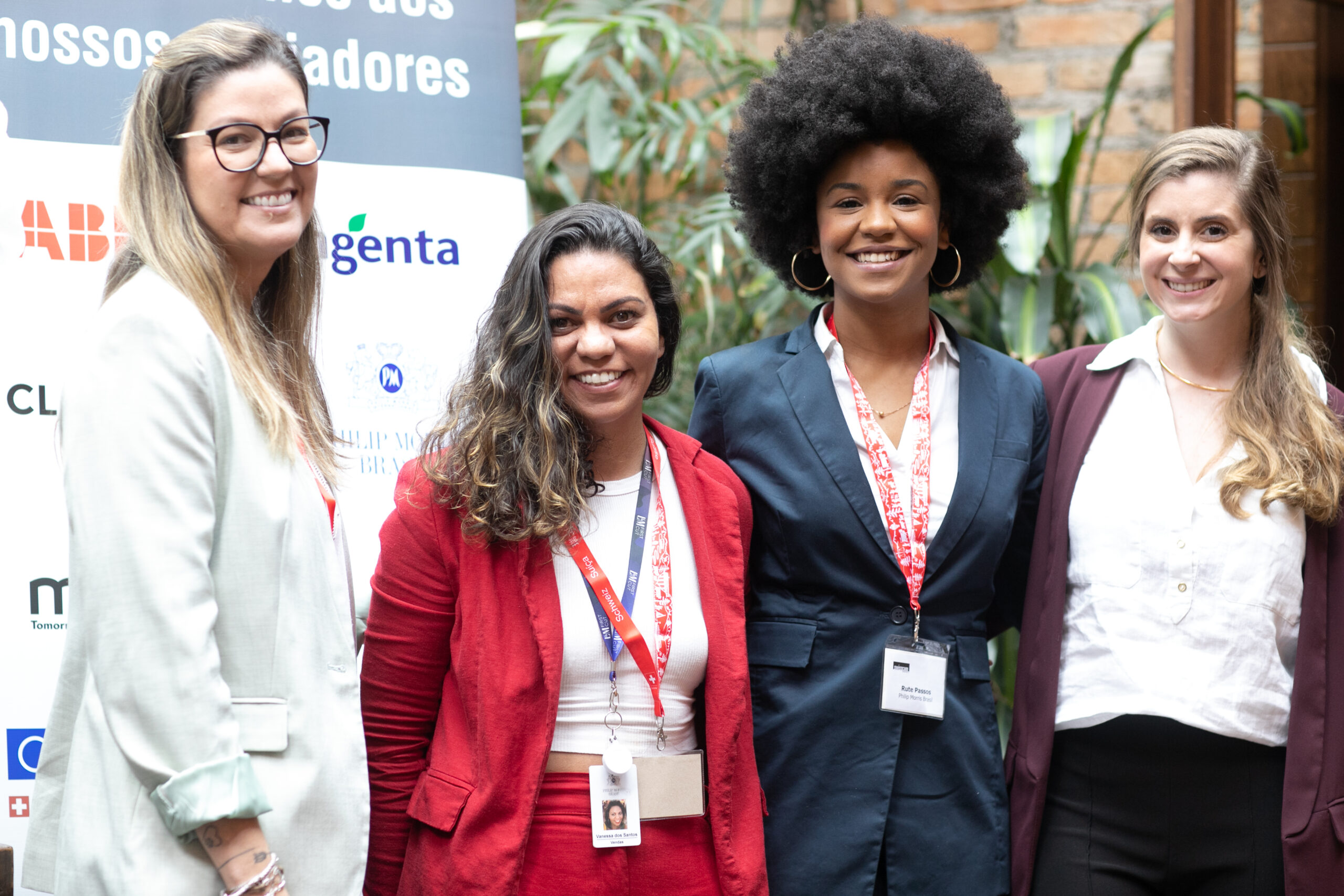On October 7th, SWISSCAM held the 5th edition of the event on Diversity & Inclusion, an initiative of the Human Resources Committee, with the theme “Promoting racial equity in the workplace”. After two years in the remote format, we celebrated the return of the face-to-face event by offering a breakfast to our members.
The coordinator of the Human Resources Committee, Maria Lúcia Menezes Gadotti, opened and moderated the event, bringing the testimony of her touching personal story with African roots and which reflects the reality of racial conflict in the country.
The first panelist was Rute Passos, lawyer at Philip Morris Brasil (PMB), Master in Human Rights and PhD student in International Relations at the Institute of International Relations at the University of São Paulo. Rute recalled that Brazil was the last country to abolish slavery. She also made a comparison with the representation of women at workplace, whose environment was mostly male. In the long path that led women to conquer these spaces and to engage companies in the promotion of leadership positions, there was a lot of discussion. To the same extent, it is necessary to discuss racial diversity and inclusion. As we advance in gender diversity, we observe that in the case of black women, representation is much lower. The more social markers are added (example: black trans women), the greater the vulnerability and the less representativeness in the relevant environments of society, both private and public.
Active in PMB’s Pro Bono and Diversity and Racial Inclusion projects, Rute presented the company’s various initiatives, such as the communication front that aims to give visibility to the theme, raise awareness of unconscious bias, pejorative terms, among others, in a way that the environment is not violent, but welcomes the employee. Discussion and awareness-raising sessions for other employees are also held to repudiate racist behavior. Another initiative is the census at the company. There is a literacy work with the leadership, as there is no way to talk about the purpose and good intentions without it being aligning with the business strategy. In addition, Philip Morris has developed a social commitment clause in all of its contracts.
The second panelist Débora Paiva holds a Master in Strategic Marketing from Cranfield University-UK and Founder of Ubuntu Labs. She worked in Brazil and abroad in the marketing of companies such as Roche, Philips, Deloitte and Elsevier. She was elected one of the most innovative black people in healthcare by Forbes Brazil. Débora told her professional trajectory in leadership positions and the obstacles she faced, including the gender issue. As an example, she mentioned that, sometimes, to negotiate and close contracts, she needed to take a man from her team with her.
Although the scenario still shows that the environments of the companies, as pointed out by the researcher Cida Bento, are homogeneous, male and white, there are also opportunities. Larry Flink, CEO of BlackRock, one of the largest investment fund companies in the world, in his annual letter this year says: “We will have to address the issue of racial equity”. Google announced that it will invest BRL 8.5 million in startups led by black people.
In the 3 years in which she has been working with diversity in the mining area, Débora found that more diverse companies identify 67% fewer injuries, 28% less absences, and an 11% increase in the delivery of results. That is, the operational cost of mining decreases when you have more diverse teams. The main unconscious bias that impacts when hiring is the issue of affinity. We tend to get closer to those who are just like us. Regarding meritocracy, we cannot say that we are all in the same boat. Débora warns that we are in the same ocean, but each one with a different transport or no transport at all. Hence the importance of each one being informed and promoting equity.
Denise Carmo, third panelist, is manager of the Patient Journey at Roche, graduated in Journalism and Tourism. She remembered the beginning of her professional career when she was the only black woman in her midst, in a state with a majority black population, Bahia. When she joined Roche, which has a global strategy for diversity and inclusion, she became a member of AFA Collective, a diversity front focused on promoting racial equity within the company, and is currently its leader, today with 150 members. Literacy actions are carried out in large events, but also individually or in sectors. She highlighted the occasion when the president of Geledés – Instituto da Mulher Negra was at the company to talk about the structure of racism in the country and also the memorable meeting with Dr. Fernanda Bairros, who spoke about the health of the black population in Brazil.
The group makes articles, publications, and also created a library with Afro literature and made available a virtual course by Djamila Ribeiro. In addition, work was carried out with the company’s communication department, since the patients illustrated in the
advertising did not reflect the Brazilian reality, especially the SUS patient, for which Roche works mostly. Regarding the selection processes, Denise reinforces the importance of looking at the candidate’s profile as a whole, and not just titles and diplomas, as this is what Roche helps to build. She mentioned, for example, that language courses are offered free of charge to all employees.
Talk about diversity and inclusion is a work for the whole year, as in the events “Senta que lá vem o AFA”. Denise concludes “We don’t want to talk about this only on November 20th [Black Consciousness Day]. We want to celebrate our achievements on November 20th.”
The last panelists were Reinaldo Bulgarelli and Jader Nicolau Júnior. Reinaldo is the founder and managing partner at Txai Consultoria e Educação, a company created to work in the area of sustainability and corporate social responsibility, with a strong focus on diversity, equity and inclusion. He received the Africa-Brazil Award in 2007 for carrying out affirmative actions in the field of race relations and diversity. Helped to create the Ethos Institute indicators. He is executive secretary of the LGBTQIA+ Business and Rights Forum, which prioritizes black people. He mentioned a survey by the Ethos Institute with the 500 largest companies that found 95% of whites in executive positions and 5% of black people. Of the latter, only 0.4% are black women.
Jader is the founder of Portal Afro website, Founder of the NGO Instituto Portal Afro, journalist, Photo Reporter and Video Maker. A professional specialized in black culture, with a collection of documents, photos, and data from various researches, referring to black people. He illustrated his presentation with some of his photos from Switzerland to inspire and remind us that we are not limited people. We have the power to influence the environment we are in with our thoughts and energy. May everyone play their part in building a more inclusive environment.
Pictures: Carol Luz.

